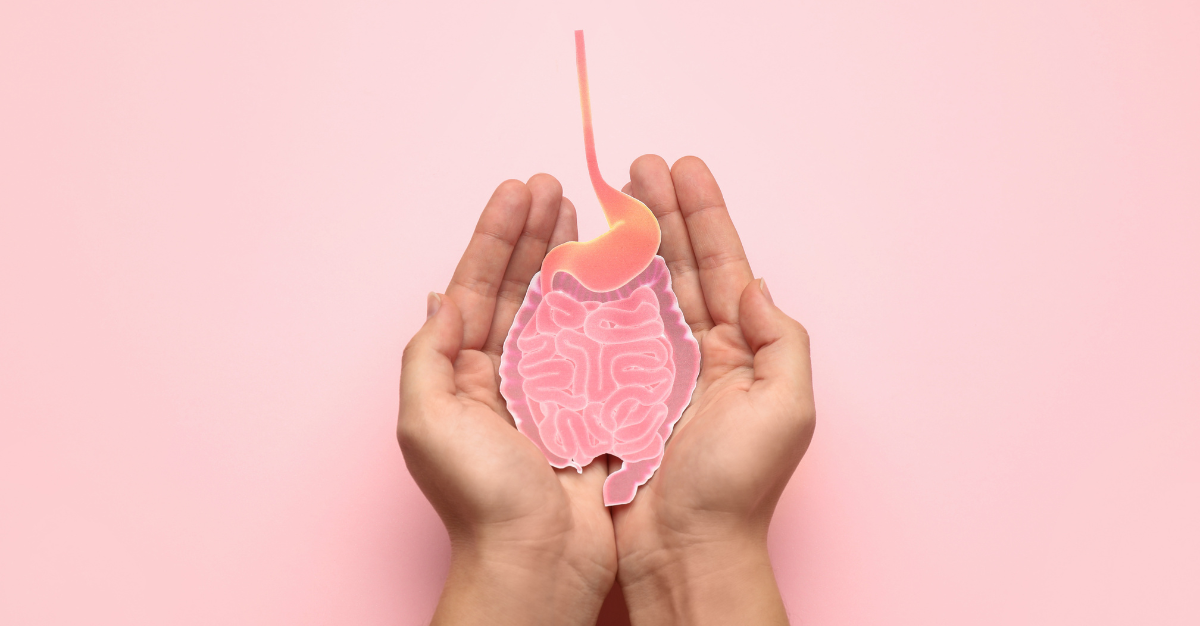
Many health trends come and go, and at times it can be difficult to determine fad from fact and healthy from unhealthy (we’re looking at you low-fat and Atkins diets). That’s why it is important to do your research beforehand to see whether these trending health tips are right for you.
This month, we are diving into some of the hottest wellness trends of the moment. Keep reading to find out if these are worth trying to better your health, or skipping altogether!
Top 5 Health Trends In 2023
1 - Intermittent Fasting
Fasting is not new– it has existed as a religious practice in many parts of the world for millennia. However, in recent years intermittent fasting has emerged as a health hack for shedding weight and boosting metabolism. Some studies even suggest that periods of fasting may be protective against cancer and disease.
For most people, intermittent fasting involves simply limiting food consumption to certain hours of the day. Many people do this by limiting their eating window to 8 hours of the day, perhaps 10 am - to 6 pm or 1 pm - 9 pm. The rest of the 16 hours is spent not eating or eating very little.
Humans did not always have food readily available as we do now– when there was nothing to hunt or forage, there was simply nothing to eat! As a result, our evolution allows us to go for periods without eating.
Recent research suggests that this provides numerous health benefits, including increased metabolism, disease prevention, decreased stress and inflammation, and improved memory and cognition.
However, some experts advise against intermittent fasting for women, especially those of childbearing age, as it may interfere with their hormonal cycles. Additionally, those being treated for diabetes or living with a compromised immune system may want to avoid intermittent fasting (or speak to their doctor before trying it).
2 - Cold Plunging
This wellness trend is extremely hot right now– but it involves getting very cold! Cold exposure therapy has been used by athletes for years to help with post-workout recovery, but has recently become more mainstream. You’ve probably seen your favorite celebrities dunking in ice baths on social media– but what exactly are the benefits?
Cold plunging involves fully submerging yourself in very cold water (typically 45-60°F) for short periods of time. This is not just an exercise in mental resilience– recent research points to numerous health benefits of cold plunging, including:
● Immune support. Cold plunges benefit your immune system by promoting the production of white blood cells necessary for fighting off infections and viruses (1).
● Improved mood and focus. Exposure to cold water causes the body to release norepinephrine, a chemical which is responsible for attention, focus and energy. It has also been shown to increase one’s baseline levels of dopamine.
● Reduced inflammation. When the body is in cold water it causes the blood vessels to narrow, which in turns reduces blood flow to the extremities and redirects it to vital organs. This decreases inflammation by reducing the amount of blood flow to the inflamed or affected area. This is why cold exposure has often been used by athletes to help treat muscle damage, swelling, stiffness, and pain (2).
● Increased lymphatic flow. The lymphatic system helps remove waste and toxins from your body. When you cold plunge, your muscles naturally contract, and this contraction stimulates the lymphatic system to detoxify (3).
Whether you’re an experienced athlete or you simply want to challenge yourself and boost your overall health, cold therapy may become an essential part of your wellness routine.
It can help recover sore muscles, reduce inflammation, boost the immune system, and benefit your mental wellness. However, there are certain risks to cold plunging, especially for those with people with heart, blood pressure, and other circulatory issues (4).
Before you take the plunge, you may want to speak with your healthcare practitioner about whether or not it is right for you.
3 - Adaptogens
Adaptogens are herbs, roots, and other plant extracts that help the body handle stress, anxiety, and fatigue (5). They have been used in Eastern medicine for hundreds of years, but have exploded onto the mainstream wellness scene recently as people are increasingly looking for ways to manage their stress levels and boost their immune system.
Let's take a closer look at some of the most popular adaptogens and their possible benefits/side effects.
● Ashwagandha. Traditionally used in Ayurveda, ashwagandha is trending now for its stress relieving, anti-anxiety properties. It may be particularly useful for those struggling with depression, as studies have shown that ashwagandha helps promote serotonin production in the brain. It is also known to promote good sleep and can be used to help treat insomnia (6). One caveat is that it may interact negatively with certain medications and is not recommended for pregnant or breastfeeding women. As always, be sure to consult your healthcare practitioner before starting a new supplement!
● Maca. Originating in the Andes mountains, this root is traditionally used to boost the libido and aid in fertility. Research also shows that it can be used to reduce symptoms of menopause, such as hot flashes and poor sleep. Some studies suggest that maca can be useful in boosting energy levels, though more research is needed.
● Reishi. Reishi mushrooms have incredible immune-boosting properties. Research has shown that reishi affects the genes in white blood cells, which are critical to strong immunity (7). Other studies indicate that reishi has anti-cancer and anti-inflammatory properties, making it a powerhouse mushroom (8). Many people add reishi powder to their coffee or teas, but it can also be found consumed in tablet or tincture form.
4 - CBT- I for sleep
CBT-I stands for Cognitive Behavioral Therapy for Insomnia. Its main focus is identifying thoughts and behaviors that contribute to the unpleasant symptoms of insomnia (9).
If you are struggling to get a good night's rest, you may already feel the negative effects it has on your health. Apart from fatigue, poor sleep can lead to lowered immune function, slower metabolism, mental fatigue and more. If you’ve tried everything to no avail, this wellness trend might just be for you!
Several studies have demonstrated its efficacy, making it the number one recommended treatment for primary insomnia (10).
So what does CBT-I look like? Let’s look at some of its major tenants.
● Cognitive interventions. Involves restructuring thoughts that are not conducive to sleep. For example, many insomniacs worry about falling asleep, which may lead to spending excessive time in bed to try to force sleep. This can become a frustrating, nightly cycle that cognitive restructuring attempts to break by identifying, challenging, and altering the thoughts and beliefs that hinder sleep.
● Behavioral interventions. Many people with insomnia dread going to their bedroom, because they associate it with frustration. They may also associate their bedroom with habits that make sleeping more difficult, like eating, watching TV, or using a cell phone or computer. During CBT-I treatment, these unhelpful stimuli are removed, and the bedroom is reclaimed as a place exclusively for restful sleep.
● Psychoeducation. The CBT-I provider educates the patient about the importance of good sleep hygiene, and the deep relation between thoughts, behaviors, and sleep.
CBT-I is often provided by a doctor, counselor, therapist, or psychiatrist trained in this form of treatment. It has demonstrated impressive success for treating insomnia, but it doesn’t always work right away. It takes time to learn and practice the skills of good sleep hygiene learned in treatment.
5 - Nootropics: Mood-boosting foods
Recently, feel-good foods or nootropics have been trending as people look for ways to help fight depression, ward off dementia, and support brain health.
These foods contain essential nutrients, amino acids, minerals, and other chemicals that the brain uses as fuel for neurotransmission (11). They enhance your brain’s ability to perform more effectively.
What are the best feel-good foods? Below are foods that experts recommend regularly including in your diet to help support cognitive performance:
● Coffee. Your morning cup of coffee may be doing more for your brain than you think! Studies have found that consuming coffee reduces the risk of multiple sclerosis (MS), Parkinson's disorder, and Alzheimer's disease (12). Just don’t forget that too much coffee can lead to anxiety in many people.
● Fatty fish. This includes salmon, herring, trout, sardines, and albacore tuna, which are all high in omega-3 fatty acids. About 60% of your brain contains fat, and omega-3 fatty acids account for half of that. Consuming these fatty acids is thus a huge benefit to your brain, and can help prevent brain fog and the development of Alzhiemers disease (13).
● Egg Yolks. Egg yolks are high in choline, a compound which produces hormones related to feelings of well-being. Choline also gets absorbed by the body and turned into a chemical called acetylcholine, which supports memory retention and establishing peaceful sleep.
● Green Tea. Green tea contains L-theanine, an amino acid that has been studied for its positive effects on brain health and anxiety. People who consume a beverage containing L-theanine like green tea reported significantly lower subjective stress and decreased cortisol levels.
Although these five trends are backed by scientific research, remember that they’re not for everyone. Working with a healthcare practitioner who can steer you in the right direction should always be the first step before embarking on a new routine or wellness trend. Reach out to us if you have any questions!
Sources:
Mindikoglu AL, Abdulsada MM, Jain A, Choi JM, Jalal PK, Devaraj S, Mezzari MP, Petrosino JF, Opekun AR, Jung SY. Intermittent fasting from dawn to sunset for 30 consecutive days is associated with anticancer proteomic signature and upregulates key regulatory proteins of glucose and lipid metabolism, circadian clock, DNA repair, cytoskeleton remodeling, immune system and cognitive function in healthy subjects. J Proteomics. 2020 Apr 15;217:103645. doi: 10.1016/j.jprot.2020.103645. Epub 2020 Jan 9. PMID: 31927066; PMCID: PMC7429999.
Roger Collier,Intermittent fasting: the science of going without, CMAJ June 11, 2013 185 (9) E363-E364; DOI: https://doi.org/10.1503/cmaj.109-4451
Precision Nutrition, Does intermittent fasting work for women?” https://www.precisionnutrition.com/intermittent-fasting-women
Huberman Lab, The Science and Use of Cold Exposure for Health and Performance, https://hubermanlab.com/the-science-and-use-of-cold-exposure-for-health-and-performance/
Lombardi G, Ricci C, Banfi G. Effect of winter swimming on haematological parameters. Biochem Med (Zagreb). 2011;21(1):71-8. doi: 10.11613/bm.2011.014. PMID: 22141210.
Tiina Pääkkönen & Juhani Leppäluoto (2002) Cold exposure and hormonal secretion: A review, International Journal of Circumpolar Health, 61:3, 265-276, DOI: 10.3402/ ijch.v61i3.17474
Srámek P, Simecková M, Janský L, Savlíková J, Vybíral S. Human physiological responses to immersion into water of different temperatures. Eur J Appl Physiol. 2000 Mar;81(5):436-42. doi: 10.1007/s004210050065. PMID: 10751106.
Johnson A, Roberts L, Elkins G. Complementary and Alternative Medicine for Menopause. J Evid Based Integr Med. 2019 Jan-Dec;24:2515690X19829380. doi: 10.1177/2515690X19829380. PMID: 30868921; PMCID: PMC6419242
Yeung SS, Ting KH, Hon M, Fung NY, Choi MM, Cheng JC, Yeung EW. Effects of Cold Water Immersion on Muscle Oxygenation During Repeated Bouts of Fatiguing Exercise: A Randomized Controlled Study. Medicine (Baltimore). 2016 Jan;95(1):e2455. doi: 10.1097/MD.0000000000002455. PMID: 26735552; PMCID: PMC4706272.
Todorova V, Ivanov K, Delattre C, Nalbantova V, Karcheva-Bahchevanska D, Ivanova S. Plant Adaptogens-History and Future Perspectives. Nutrients. 2021 Aug 20;13(8):2861. doi: 10.3390/nu13082861. PMID: 34445021; PMCID: PMC8398443.
Speers AB, Cabey KA, Soumyanath A, Wright KM. Effects of Withania somnifera (Ashwagandha) on Stress and the Stress- Related Neuropsychiatric Disorders Anxiety, Depression, and Insomnia. Curr Neuropharmacol. 2021;19(9):1468-1495. doi: 10.2174/1570159X19666210712151556. PMID: 34254920; PMCID: PMC8762185.
Speers AB, Cabey KA, Soumyanath A, Wright KM. Effects of Withania somnifera (Ashwagandha) on Stress and the Stress- Related Neuropsychiatric Disorders Anxiety, Depression, and Insomnia. Curr Neuropharmacol. 2021;19(9):1468-1495. doi: 10.2174/1570159X19666210712151556. PMID: 34254920; PMCID: PMC8762185.
Johnson A, Roberts L, Elkins G. Complementary and Alternative Medicine for Menopause. J Evid Based Integr Med. 2019 Jan-Dec;24:2515690X19829380. doi: 10.1177/2515690X19829380. PMID: 30868921; PMCID: PMC6419242.
Atsushi Honma, Yumi Fujiwara, Shin Takei, Takao Kino The improvement of daily fatigue in women following the intake of maca (Lepidium meyenii) extract containing benzyl glucosinolate, Functional foods in health and disease.
Wang X, Lin Z. Immunomodulating Effect of Ganoderma (Lingzhi) and Possible Mechanism. Adv Exp Med Biol. 2019;1182:1-37. doi: 10.1007/978-981-32-9421-9_1. PMID: 31777013.
Jin H, Song C, Zhao Z, Zhou G. Ganoderma Lucidum Polysaccharide, an Extract from Ganoderma Lucidum, Exerts Suppressive Effect on Cervical Cancer Cell Malignancy through Mitigating Epithelial-Mesenchymal and JAK/STAT5 Signaling Pathway. Pharmacology. 2020;105(7-8):461-470. doi: 10.1159/000505461. Epub 2020 Jan 29. PMID: 31995806.
Sleep Foundation, Cognitive Behavioral Therapy for Insomnia, sleepfoundation.org/insomnia/treatment/cognitive-behavioral-therapy-insomnia
Muench A, Vargas I, Grandner MA, Ellis JG, Posner D, Bastien CH, Drummond SP, Perlis ML. We know CBT-I works, now what? Fac Rev. 2022 Feb 1;11:4. doi: 10.12703/r/11-4. PMID: 35156100; PMCID: PMC8808745
Suliman NA, Mat Taib CN, Mohd Moklas MA, Adenan MI, Hidayat Baharuldin MT, Basir R. Establishing Natural Nootropics: Recent Molecular Enhancement Influenced by Natural Nootropic. Evid Based Complement Alternat Med. 2016;2016:4391375. doi: 10.1155/2016/4391375. Epub 2016 Aug 30. PMID: 27656235; PMCID: PMC5021479.
Ding M, Satija A, Bhupathiraju SN, Hu Y, Sun Q, Han J, Lopez-Garcia E, Willett W, van Dam RM, Hu FB. Association of Coffee Consumption With Total and Cause-Specific Mortality in 3 Large Prospective Cohorts. Circulation. 2015 Dec 15;132(24):2305-15. doi: 10.1161/CIRCULATIONAHA.115.017341. Epub 2015 Nov 16. PMID: 26572796; PMCID: PMC4679527.
Devassy JG, Leng S, Gabbs M, Monirujjaman M, Aukema HM. Omega-3 Polyunsaturated Fatty Acids and Oxylipins in Neuroinflammation and Management of Alzheimer Disease. Adv Nutr. 2016 Sep 15;7(5):905-16. doi: 10.3945/an.116.012187. PMID: 27633106; PMCID: PMC5015035.
Zeisel SH, da Costa KA. Choline: an essential nutrient for public health. Nutr Rev. 2009 Nov;67(11):615-23. doi: 10.1111/j.1753-4887.2009.00246.x. PMID: 19906248; PMCID: PMC2782876.
Hidese S, Ogawa S, Ota M, Ishida I, Yasukawa Z, Ozeki M, Kunugi H. Effects of L-Theanine Administration on Stress-Related Symptoms and Cognitive Functions in Healthy Adults: A Randomized Controlled Trial. Nutrients. 2019 Oct 3;11(10):2362. doi: 10.3390/nu11102362. PMID: 31623400; PMCID: PMC6836118.



